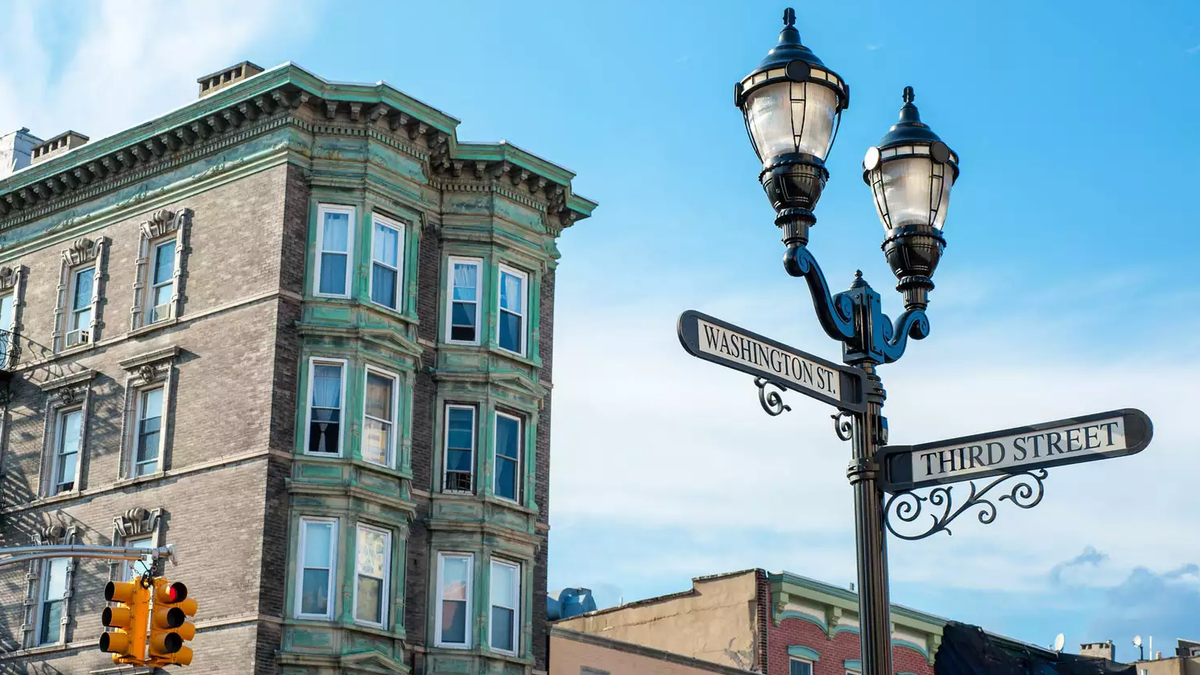Once a bustling industrial port town directly across from midtown Manhattan, Hoboken is now a trendy walkable/bikeable destination town with posh waterfront highrises and twee coffee shops. Despite lots of foot traffic, and considerable four-wheeled traffic, the city hasn’t seen a single traffic death since January 2017, and according to Bloomberg, traffic injuries are down about 40 percent in that same period. Mayor Ravi Bhalla’s ‘Vision Zero’ executive order, a campaign to completely eliminate traffic deaths, has proven its worth in keeping Hobokenites alive.
The plan boils down to a few simple changes in the tiny city on the Hudson; lower speed limits, protected bike lanes, improved crosswalks, and curb extensions. That’s it. Some signs, a bit of paint, and some concrete curbing has completely slashed road deaths in the city to zero. The city’s goal isn’t ending there, however, as Vision Zero hopes to achieve zero traffic injuries by 2030. It’s definitely an ambitious, but worthy, goal.
“Just with a bucket of paint, you can actually create a curb extension; you can create high visibility crosswalks, which create a much safer environment at a very cheap cost,” Bhalla said. “And then when you do the next iteration of repaving, you can really amplify and increase on those improvements that you’ve made.”
The first step for Bhalla was to reduce the number of cars on Hoboken’s streets. By installing bike lanes and inviting bike-sharing company Citi Bike to his little corner of New Jersey, this was accomplished fairly quickly. Since Citi Bike entered Hoboken in 2021, nearly a million trips have been taken on peddled pedal power. Along with the bike lane plan was an opportunity to repave and re-paint all of the city’s crosswalks for better pedestrian visibility. Forty curb extensions have been installed, which nudge cars farther from street corners when making turns, and prevents pedestrians from being hidden by thick A-pillars.
The biggest change, however, has been the city’s commitment to speed reduction. In 2022 Hoboken lowered its city speed limit from 30 miles per hour to just 20. Pedestrians have an 80 percent survival rate when hit by a car travelling 30 miles per hour, but the survivability of an impact balloons to more than 93 percent when the car is moving at 20 miles per hour. Death and injury rates rise exponentially with speed, and New Jersey has proven that reducing speed reduces death and injury.
This kind of city planning has an opportunity to catch on. Reducing pedestrian-to-car impacts is the first step. Reducing the speed of those impacts is the next step. And improving our signage, road paint, and concrete curbing to make pedestrians and cyclists safer is as important as anything else. Hoboken has proven it doesn’t take much, but it does take action. So many cities could learn from Hoboken’s impressive Vision Zero plan, and implement their own.

